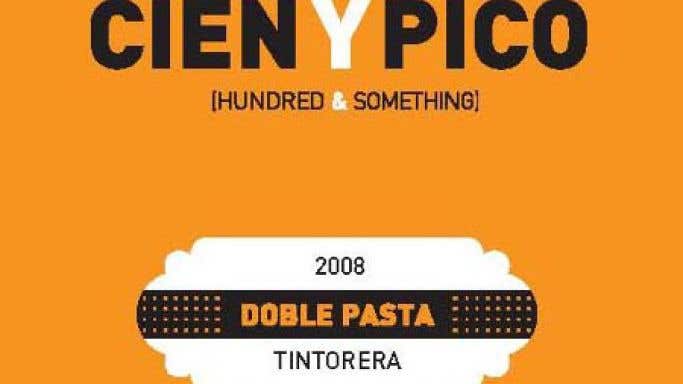From €8.41, £10.69, 13.90 Swiss francs, US$19.99, AU$22.58
Find this wine
Some wines enter on tiptoe and whisper their restrained but captivating spell. This wine bounds up to you, grabs you by the scruff of the neck and has your full attention. Then it starts to reveal its fabulous aromas and many layers. It is very deeply coloured, like crushed elderberries, and has an amazing aromatic range from dark fruit, cocoa powder, charred potato skins and wild herbs. I normally avoid such long lists of seemingly unrelated descriptors but this wine just keeps on giving.
The taste is equally inviting and complex, if not for the faint-hearted: compact but very fine tannins, great freshness, bone dry, full of flavour and personality but not in the least rough around the edges thanks to the effortless concentration of ancient vines. There's a touch of that roasted character but it's not in the least bit overripe or over-sweet. And so moreish. It went very well with a cheesy vegetable gratin but I would have loved to try it with seared meat. The alcohol is 13.5% but not at all intrusive.
All this deliciousness is even more remarkable when you know that this wine is made from Tintorera, or Garnacha Tintorera, more generally known outside Spain as Alicante Bouschet, a grape variety that today produces more impressive results in southern Portugal than in its French homeland, where it was widely planted after the phylloxera invasion in the late 19th century, mainly for its deeply coloured juice and high yields. As the name Tintorera suggests, this is a so-called teinturier variety, which means its berries are, unusually, red-fleshed. (The Spanish name makes good sense since one of its parents is Garnacha/Grenache.) Cien y Pico, meaning 'one hundred and something', refers to the age of the Tintorera bushvines that grow at 1,000m on the meseta (plateau) of Castilla-La Mancha in central Spain (where so much of the four million hectolitres of wine recently despatched to compulsory distillation was grown). Cold winters, very hot summers and extremely low rainfall (300 mm a year) create the extreme conditions for vines like the one pictured here, which, not surprisingly, yield just 3 tonnes/ha (around 20 hl/ha).
Cien y Pico, meaning 'one hundred and something', refers to the age of the Tintorera bushvines that grow at 1,000m on the meseta (plateau) of Castilla-La Mancha in central Spain (where so much of the four million hectolitres of wine recently despatched to compulsory distillation was grown). Cold winters, very hot summers and extremely low rainfall (300 mm a year) create the extreme conditions for vines like the one pictured here, which, not surprisingly, yield just 3 tonnes/ha (around 20 hl/ha).
The four winemakers behind this project, Australian Zar Brooks, his Bulgarian wife Elena Golakova Brooks (pictured below), Spaniard Luis Juminez García and Italian Nicola Tucci describe themselves on their website as 'four aspiring wine knights and some bloody old vineyards', modelling themselves on Don Quixote and his fellow travellers, and the other wine they make from this variety – even more intense and expressive but equally delicious – is called Knights Errant. They also make two terrific wines from equally old Bobal bushvines. Doble Pasta refers to the winemaking technique: the crushed grapes are fermented over additional grape skins and pulp, to obtain a high extract, colour and tannin. The amazing thing is that with all this intensity – from the vines and the winemaking – the wine remains so fresh and vibrant. It is fermented in small open vats over a period of 10 days. Aged in French oak but only 20% new. Bottled under screwcap and with packaging as eye-catching as the wine is attention-grabbing.
Doble Pasta refers to the winemaking technique: the crushed grapes are fermented over additional grape skins and pulp, to obtain a high extract, colour and tannin. The amazing thing is that with all this intensity – from the vines and the winemaking – the wine remains so fresh and vibrant. It is fermented in small open vats over a period of 10 days. Aged in French oak but only 20% new. Bottled under screwcap and with packaging as eye-catching as the wine is attention-grabbing.
According to UK importers Liberty Wines, the Doble Pasta is available from Philglas & Swiggot, Selfridges, Askewine, Taylor's Fine Wines, The Wine Reserve, The Secret Cellar, Wined Up Here, Hennings Wine Merchants, Bennetts Fine Wines, Scarlet Wines, Grape & Grind, Eynsham Cellars, Cambridge Wine Merchants, Satchells of Burnham Market, Vin Neuf, Halifax Wine Co., Latitude Wine, Flourish & Prosper, Reserve Wines, The Wine Chambers, Monmouthshire Fine Wine Company, Drinkmonger, Berits & Brown and The Vineyard Belfast. In Dublin, it is available from Martin's Off Licence (Dublin 3), James Redmond & Sons (Dublin 6), Terroirs (Dublin 4) and Mitchell & Son (Co Dublin/Dublin 1).
The wine is also available in many other countries, via the following distributors – contact them, or look on wine-searcher, for more details:
Australia: Vintage Cellars
US (though it looks as if they may still be on the 2008): Vine Street
Canada: Artisan Wines
Switzerland: Rutishauser
Sweden: Fondberg
Norway: Sommeliers
Find this wine
1 Aug 2014
Cien y Pico, Doble Pasta Tintorera 2009 Manchuela

